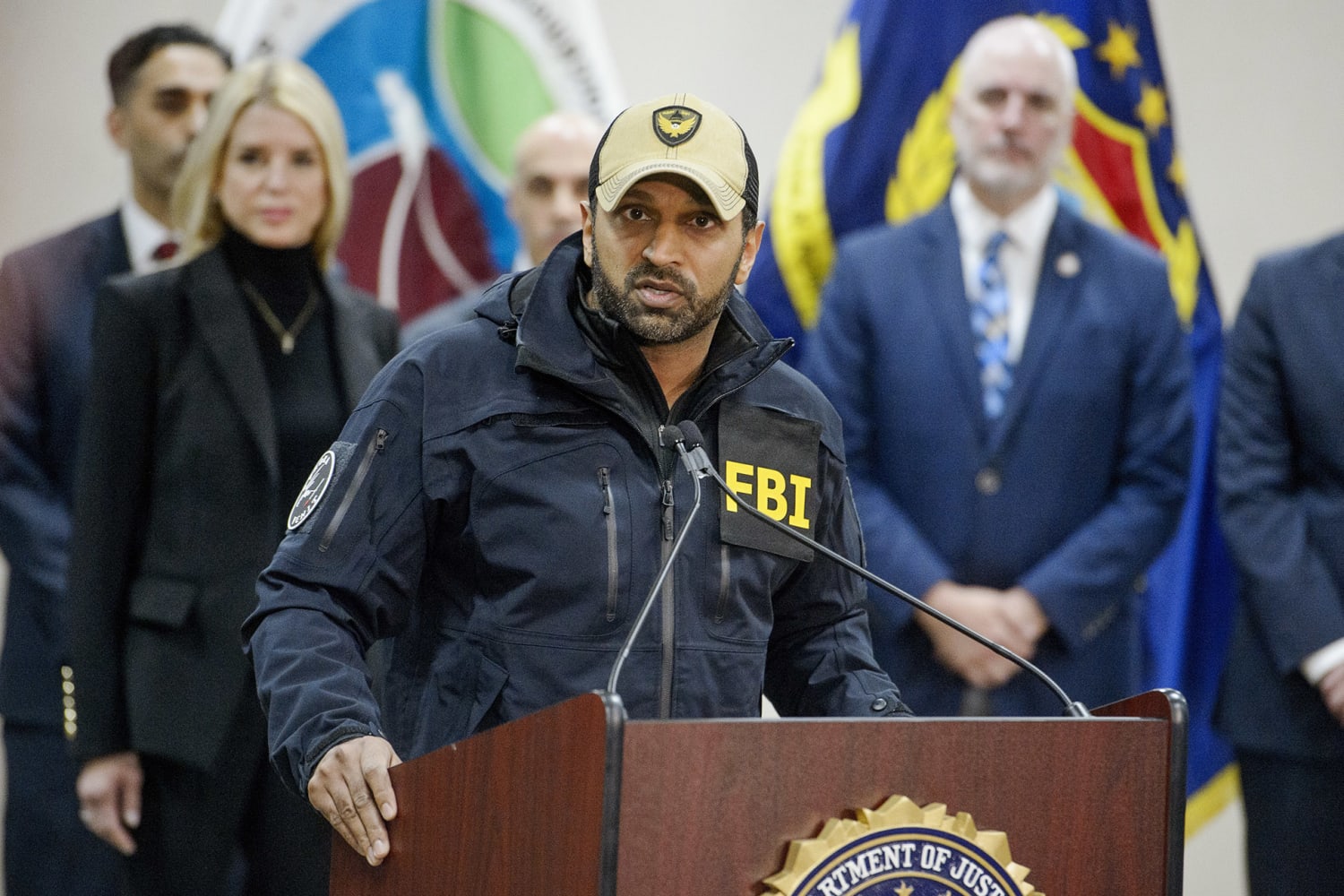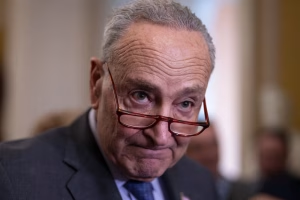A years-long federal investigation has uncovered an extensive network of corruption involving multiple law enforcement officers across several counties and jurisdictions, authorities announced Thursday. The investigation, which spanned law enforcement agencies from patrol officers to elected sheriffs, revealed a series of alleged crimes related to drug trafficking, bribery, and abuse of power that federal officials describe as “a monumental betrayal of public trust.”
Andrew Bailey, co-deputy director of the Federal Bureau of Investigation (FBI), said the scope of the alleged corruption was striking. “Corruption permeated multiple counties and multiple jurisdictions in the state and beyond,” Bailey said. “These actions disgraced the badge and undermined the integrity of law enforcement officers working honestly across the region.”
According to federal authorities, the alleged misconduct primarily involved law enforcement officers providing protection and other facilitation for what they believed were members of a Mexican drug cartel. In reality, the individuals posing as cartel members were undercover federal agents. While no actual connection to international criminal organizations has been identified, court documents indicate that the officers accepted bribes and facilitated drug-related activity over a period of several years.
Clay Joyner, U.S. Attorney for the Northern District of Mississippi, emphasized that the investigation stemmed from tips originating within the local criminal ecosystem. “This investigation began after the FBI received credible information from individuals in the community alleging that police officers were soliciting bribes in exchange for protection,” Joyner said. “The information was corroborated through extensive surveillance, undercover operations, and analysis of financial records.”
The investigation identified twenty individuals who were eventually charged with crimes, including allegations of illegally carrying firearms in connection with drug trafficking. The charges involve officers at all levels of local law enforcement, including patrol officers, sergeants, and elected sheriffs. Authorities described the conduct as a coordinated and systematic effort to manipulate the system for personal gain.
Among the individuals charged are Brandon Addison, Javery Howard, Milton Gaston, Truron Grayson, Bruce Williams, Sean Williams, Dexture Franklin, Wendell Johnson, Marcus Nolan, Aasahn Roach, Jeremy Sallis, Torio Chaz Wiseman, Pierre Lakes, Derrik Wallace, Marquivious Bankhead, Chaka Gaines, Martavis Moore, Jamario Sanford, Marvin Flowers, and Dequarian Smith. Gaston and Bruce Williams, both elected sheriffs, are accused of authorizing illegal activity within their jurisdictions, including allowing deputies to assist with drug transport operations and permitting financial exchanges from those involved in the scheme.
Officials said two other individuals initially listed in indictments were later cleared, and charges against them were dropped.
Federal authorities noted that the operation spanned a range of law enforcement agencies, including highway patrols, city police departments, and sheriff’s offices. The alleged bribes involved varied in size, reportedly ranging from a few thousand dollars to tens of thousands. Investigators also stated that some officers were allegedly involved in escorting narcotics and drug proceeds across county lines.
The scope of the investigation also reflects longstanding concerns about oversight and accountability in local law enforcement. Experts note that in close-knit, economically challenged communities, even minor misconduct can rapidly erode public trust. Mississippi has been the site of several federal probes in recent years. In Rankin County, six former officers pleaded guilty to federal civil rights violations for acts of torture and sexual assault. In Holmes County, federal authorities accused a local police department of excessive force, illegal searches, and sexual harassment. Even minor corruption, such as providing contraband in exchange for favors, has been prosecuted in the past.
The arrests related to the current investigation began early Thursday morning, following years of surveillance and undercover work. Residents in the affected areas described seeing law enforcement vehicles, sirens, and federal agents executing arrest warrants at multiple locations. Marvin Flowers, chief deputy of one county sheriff’s office, and Sergeant Chaka Gaines of a city police department were among those taken into custody.
Videos circulated online showing law enforcement vehicles with sirens activated, while officers announced warrants and directed suspects to surrender. Witnesses described a scene of confusion and disbelief, with neighbors observing some arrests from close proximity. One resident recalled waking to the sound of multiple vehicles and SWAT teams, reporting that neighbors emerged with hands raised as officers executed the operation.
The community impact of the arrests has been significant. In small towns, where residents often know officers personally, the revelations have shaken confidence in law enforcement. “You feel safe with law enforcement as a neighbor,” one resident said. “Seeing these arrests makes you question everything you thought you knew about the people sworn to protect us.”
Local leaders expressed concern over the challenge of rebuilding trust in the wake of the arrests. “In law enforcement, we’re supposed to set the bar of honesty,” one sheriff said. “We have to pick up the pieces and regain the public trust. This is devastating for our community, but we have to move forward responsibly.”
Authorities emphasized that many officers continue to serve with integrity, and the arrests target those allegedly involved in criminal activity. Federal officials underscored that public safety and accountability are top priorities. “This operation is about holding the guilty accountable, not diminishing the work of the honest men and women in law enforcement,” Bailey said.
The charges filed against the arrested officers carry significant penalties, particularly in cases involving firearms and organized criminal activity. With multiple indictments already filed and ongoing investigations, federal prosecutors expect the case to unfold over the coming months, potentially involving additional charges as new evidence emerges.
Legal experts note that the case serves as a reminder of the need for rigorous oversight and ethical standards in law enforcement. The investigation, while focused on a specific group of officers, also raises broader questions about how communities can ensure that those sworn to protect them are held accountable.
In the affected areas, residents are left to reconcile the dual realities of needing public safety and facing evidence of serious misconduct within institutions meant to provide it. Longstanding relationships and personal familiarity with law enforcement officers complicate community responses, leaving many to grapple with disappointment, anger, and uncertainty.
“We have to acknowledge that trust, once broken, takes time to repair,” a community leader said. “It’s not enough to remove those involved. There has to be a sustained effort to restore confidence and ensure this doesn’t happen again.”
Federal officials stressed the extensive planning and evidence-gathering that preceded Thursday’s arrests. Years of undercover operations, surveillance, and financial tracking enabled investigators to build a case strong enough to withstand legal scrutiny, even as it targeted members of law enforcement themselves.
Beyond the legal ramifications, the case underscores the social and cultural consequences of corruption. In small or economically vulnerable communities, the actions of a few individuals can ripple through neighborhoods, eroding faith in institutions, weakening the social contract, and complicating future policing efforts.
Observers note that restoring trust will require transparency, accountability, and a visible commitment to ethical behavior at all levels of law enforcement. Local departments must balance immediate operational challenges with the long-term imperative to demonstrate integrity and reliability to the public.
The investigation and subsequent arrests also serve as a cautionary tale for communities nationwide. Even in areas where law enforcement is generally respected, systems of oversight, reporting, and accountability are crucial to preventing abuse of power. Federal officials say this case reflects their commitment to ensuring that law enforcement officers who violate the public’s trust face consequences, regardless of rank or position.
As the legal process unfolds, authorities and community members alike will be monitoring developments closely. Federal prosecutors have pledged to provide updates as additional charges or proceedings occur, while local leaders work to maintain public safety and morale among remaining law enforcement personnel.
“This is not the end of the story,” Bailey said. “The investigation continues, and we are committed to holding all responsible parties accountable. Public trust in law enforcement is essential, and our work is dedicated to restoring it where it has been compromised.”
The story will continue to develop as federal authorities pursue additional evidence, hearings begin, and the court process moves forward. Meanwhile, affected communities are beginning the difficult work of recovery, reflection, and rebuilding the relationship between law enforcement and the public they serve.
This report has been updated to include statements from federal officials and input from residents in the affected areas. Mississippi Today reporter Leonardo Bevilacqua contributed to this story.

Emily Johnson is a critically acclaimed essayist and novelist known for her thought-provoking works centered on feminism, women’s rights, and modern relationships. Born and raised in Portland, Oregon, Emily grew up with a deep love of books, often spending her afternoons at her local library. She went on to study literature and gender studies at UCLA, where she became deeply involved in activism and began publishing essays in campus journals. Her debut essay collection, Voices Unbound, struck a chord with readers nationwide for its fearless exploration of gender dynamics, identity, and the challenges faced by women in contemporary society. Emily later transitioned into fiction, writing novels that balance compelling storytelling with social commentary. Her protagonists are often strong, multidimensional women navigating love, ambition, and the struggles of everyday life, making her a favorite among readers who crave authentic, relatable narratives. Critics praise her ability to merge personal intimacy with universal themes. Off the page, Emily is an advocate for women in publishing, leading workshops that encourage young female writers to embrace their voices. She lives in Seattle with her partner and two rescue cats, where she continues to write, teach, and inspire a new generation of storytellers.









